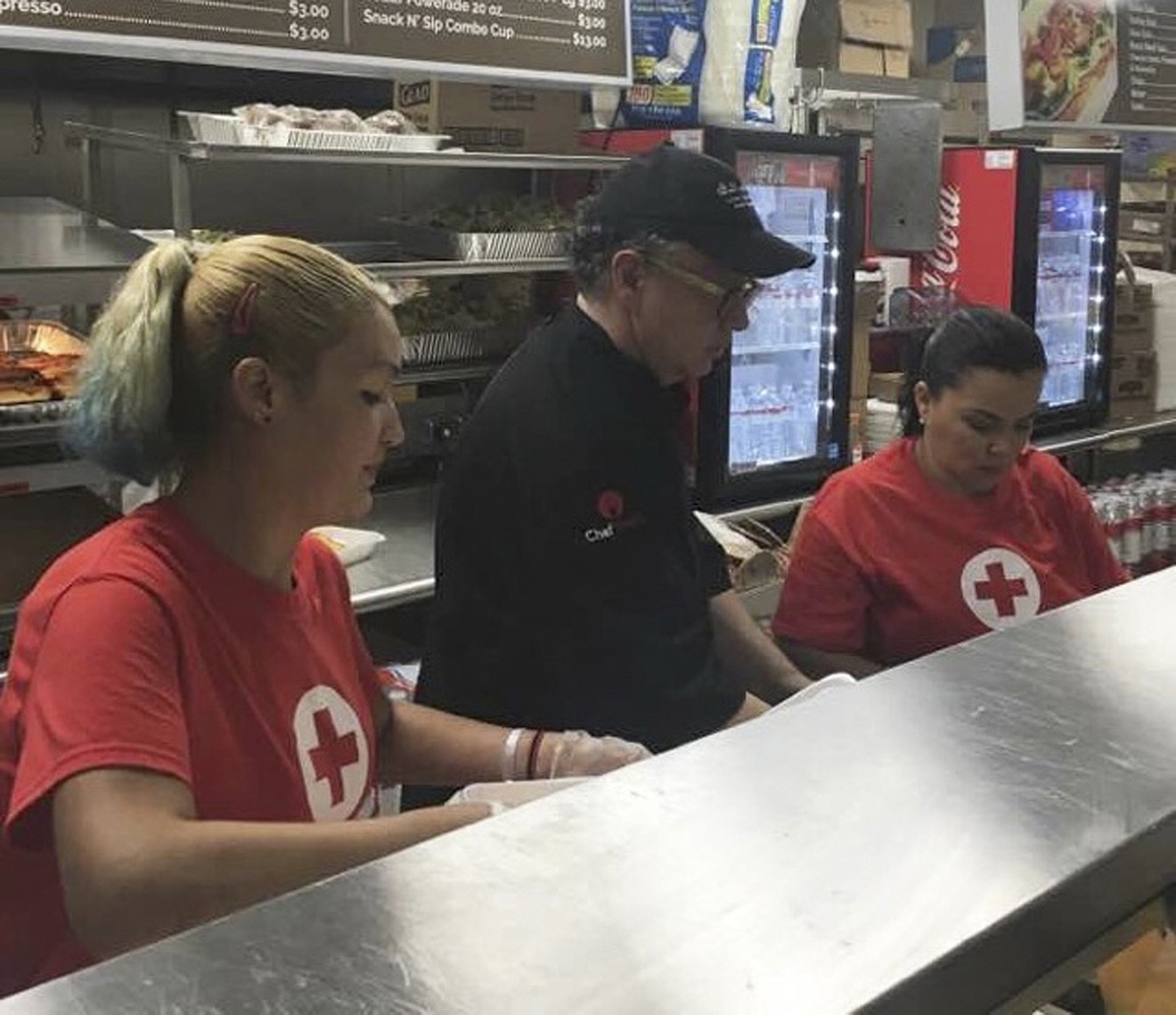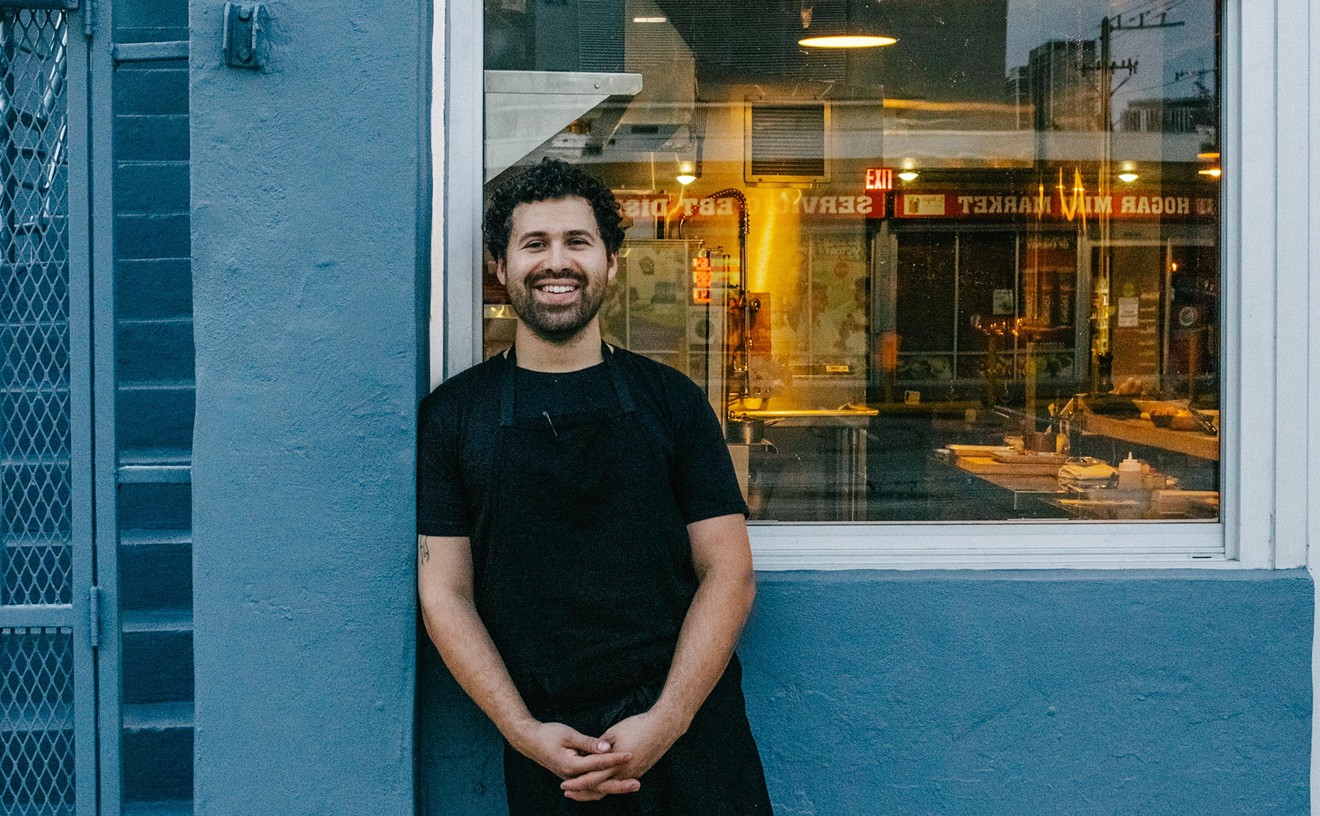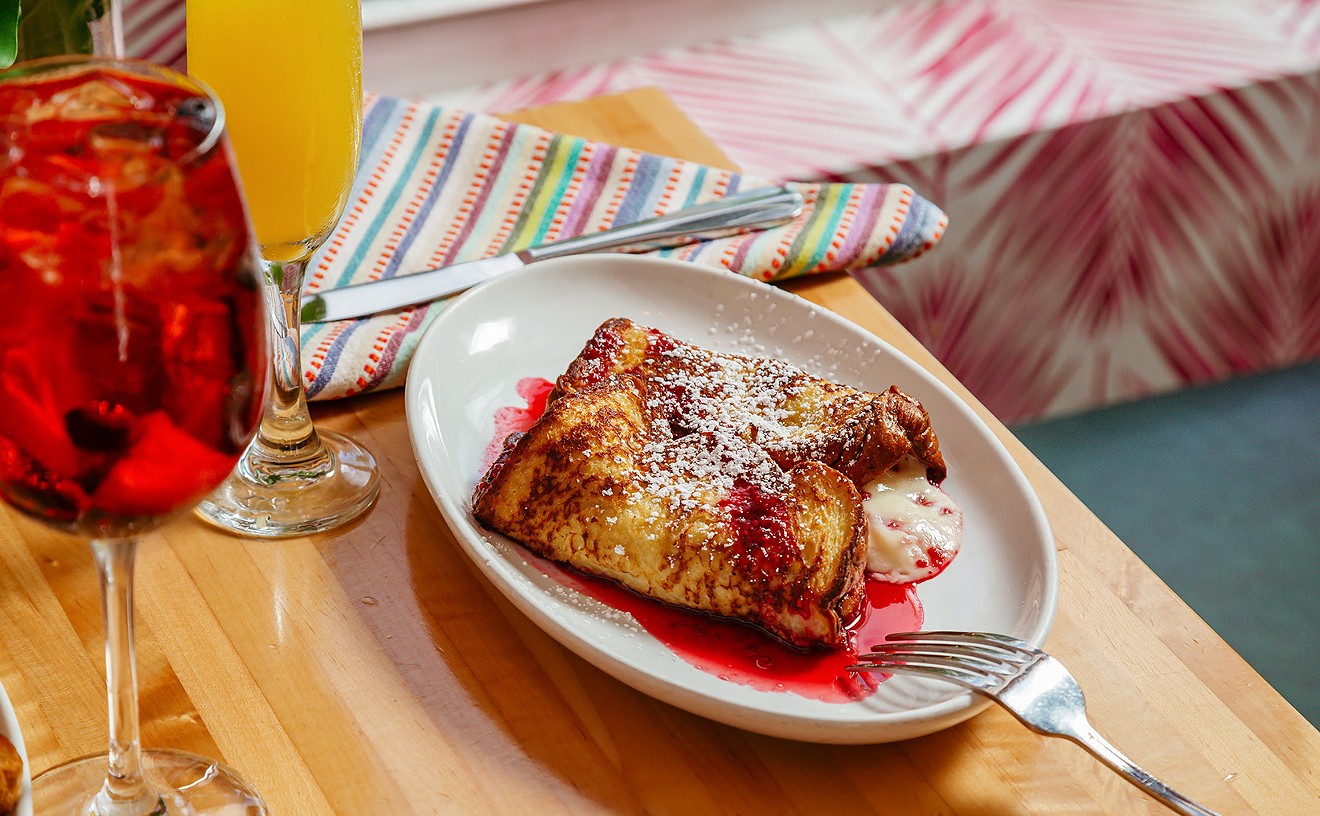The day after Hurricane Irma roared into town, Richard Hales felt lucky. His two midtown Miami restaurants, Blackbrick and Sakaya Kitchen, were unharmed. Both places had power, and residents of the high-rises that surround the neighborhood were growing antsy.
So he decided to open for dinner with a limited menu. After appraising the situation, he left Blackbrick to take care of his family in Coral Gables while his chef Joseph Camareses, nicknamed "Not Your Average Joe," began prepping for the evening meal. As Camareses put on pots of stock to simmer, he looked up to find a caravan of nearly two dozen marked and unmarked police vehicles lined up in front of the restaurant.
A short while later, police officers entered and strongly suggested the restaurant not open.
"My manager spoke to them. They said that anyone out after 7 p.m. would be fined $500 or arrested, including my diners. I couldn't have that happen."
Hurricane Irma might not have hit Miami as a Category 5 monster, but her effects were felt by many businesses, especially in the restaurant industry, where supplies are perishable and profit margins are low. Still, the storm brought out the good in many, including restaurateurs who left their own damaged homes and families to help people hit harder.
Among the first Miami restaurant owners to feel the storm's wrath was the Pubbelly Group, which has eateries in Puerto Rico and the Dominican Republic. But soon after the storm passed to the north of those islands, the group's owners — whom colleagues affectionately call the Pubbelly Boys — learned those properties had fared well in Irma.
Very soon, restaurant partner Juan F. Ayora, who lives in the MiMo District, became eager to get over to his eateries in Sunset Harbour to at least begin cleanup in preparation for reopening. But he wasn't allowed across the causeway due to regulations that banned residents and business owners from returning until Tuesday morning.
The only way he learned that the restaurants hadn't suffered major damage was through his director of operations, who had ridden out the storm in Miami Beach despite a mandatory evacuation order. Ayora says he was hoping to reopen with a discounted menu to service locals who needed a meal and a respite from the storm's aftermath. He also wanted to get his employees working again. "We wanted to get supplies in. We had a plan."
"You do what you have to do when someone hasn't eaten in four days," LoSasso says.
tweet this
That plan was thwarted by Mayor Philip Levine's decree, which cost the restaurant group as much as $100,000 per day in lost revenue, according to Ayora. Things were very different in New York and New Jersey after Hurricane Sandy whipped through there in 2012. "As soon as the winds died down, people were back to work," says Ayora, who was there at the time. "It's the American way. We just want to get back to work without the government deciding for us."
Sam Gorenstein and Roger Duarte — partners in My Ceviche and Zuuk Mediterranean Kitchen — were less frustrated, perhaps because of more advanced planning. Long before Hurricane Irma formed at sea, they added a hurricane plan to employee manuals. They found out firsthand how their action plan worked this week, Duarte says: "By Tuesday, six of our seven restaurants were open with a limited menu. By Wednesday, we were active and ready to roll."
With his reputation on the line for serving fresh seafood, Duarte says he was careful to make sure everything was safe to eat. "I'd rather close for a month than serve bad food. People always mention seafood, but chicken is just as dangerous. Keeping [everything] cold is the most important thing."
The operations manual, which included food safety, came in handy. A centralized kitchen kept its integrity during the storm as national purveyors somehow rolled in supplies. Duarte says his employees and the community are now first priority. "We have 150 employees, all in South Florida, and we have to take care of them. I opened up my house to anyone who needs it."
My Ceviche and Zuuk will also give half of the restaurants' proceeds from September 15 through 17 to hurricane-relief efforts organized by Feeding South Florida, a local charity. "They're experts," Duarte says. "Our community is what puts the roof over our heads and helps us meet our financial obligations."
Duarte adds that although his hurricane plan worked well, there's always room for improvement. "Everything in life is a lesson learned. You can say ride a storm out or put a policy in place and make it better every time. With cell towers out, could we create an employee buddy system to better communicate?"
Duarte, who also owns George Stone Crab, won't even speculate on how Irma might effect his other business." We'll take that step by step. There's nothing I can do. What I can do is help people in the community... There's so much more than business right now. Crabs walk backward; people don't."
At the Fair Expo Center, Dewey LoSasso is working with a crew of ten to provide meals to Keys residents displaced by the storm. The chef, best known for his work at the Forge in Miami Beach and heading the restaurant at Schnebly Redland's Winery, proudly notes the company he currently works for, Bill Hansen Catering, has fed four U.S. presidents, a pope, and, as of Irma, scores of evacuees for the Red Cross.
He says a call came in Tuesday at 3 p.m. to help feed the people living in a makeshift shelter at Florida International University, and Bill Hansen, the name behind the company, immediately agreed to serve 2,000 breakfasts, lunches, and dinners a day. Before daybreak Wednesday, LoSasso and his team began preparing a makeshift catering kitchen in the dark. "Our culinary team was dealing with no power. We were working with flashlights on propane stoves."
The first meal they served was simple — bagels with cream cheese, cereal with almond milk, and orange juice — but the reaction was extraordinary. "People were coming to us and saying we haven't eaten much for days and our homes are down and you're giving us bagels... and cream cheese."
LoSasso says that although he often serves fine food, this was all about giving people a hot meal. "I'm serving a Stouffer's lasagna and I'm telling this woman it's my mother's recipe. You do what you have to do when someone hasn't eaten in four days."
LoSasso made sure the pasta was served with a fresh salad with house-made vinaigrette. He says among the cross section of humanity that showed up — including police officers, people with special needs, and Red Cross personnel — a family of Mexican migrant workers carrying their belongings in a plastic garbage bag stood out. "It was hard," he says. "For a moment, I had to walk away [to gather myself]."
He and his team plan to continue their work, but first he's heading home to collect avocados to make guacamole for his neighborhood police department in Miami Shores. Says LoSasso: "They're dealing with a lot of personalities right now."
The chef says he can also relate to police officers putting the public before themselves. "In a way, I think of chefs, cooks, and catering companies as first responders. We also show up and take care of you. It's what we do. We feed people spiritually with food."











